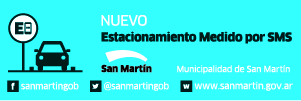Clinical trials have shown that both medications are effective in reducing ADHD symptoms, although the neurobiological mechanisms by which Vyvanse and Intuniv produce these effects remain unknown. Other agents that have been used off-label for ADHD treatment include tricyclic antidepressants, bupropion, selective serotonin reuptake inhibitors, buspirone, and atypical antipsychotic drugs.3,6. Non-Stimulant ADHD Medication (Guanfacine) as an Adjunct to ADHD Stimulant Medications. Transcript. The Difference Between Stimulant and Non-Stimulant Medication for ADHD By Save. Non-stimulants like Intuniv take longer for the effects to be felt, but they are not habit-forming. The current pharmacotherapy for attention-deficit hyperactivity disorder (ADHD) is mainly based on the stimulant methylphenidate and to a small extent on amphetamines which are not approved in Germany. Behavior therapy for ADHD is also effective and safe. File. Email. Guanfacine extended-release (GXR) is a non-stimulant alternative drug approved for the treatment of ADHD in the United States (U.S.), Canada, and Europe. Intuniv is a once-a-day non-stimulant medication, related to guanfacine, that’s used to treat ADHD in children between the ages of 6 and 17. Learn about Intuniv side effects and dosages, plus how it differs from stimulant ADD medications like Vyvanse or Adderall. Audio File. While it can be very effective in treating hyperactivity and inattentiveness, it has a major downside...many become overly fatigued and drowsy while taking it. Strattera (atomoxetine) and Intuniv (guanfacine XR) are the two non-stimulant ADHD medications currently approved for use in Canada. Authority Required (Streamlined) On 1 March 2019, guanfacine (Intuniv) was listed on the PBS as an Authority Required (Streamlined) listing. Intuniv (guanfacine) is a once-daily, non-stimulant ADHD medication used to treat symptoms of attention deficit hyperactivity disorder in children ages 6-12, and adolescents. Generic Name: Guanfacine A Research Review . Guanfacine is an effective short-term treatment option for ADHD in children six to 12 years of age. Guanfacine extended-release (GXR) is a non-stimulant alternative drug approved for the treatment of ADHD in the United States (U.S.), Canada, and Europe. The most commonly prescribed medications for ADHD include stimulants such as methylphenidate (Ritalin) and dextroamphetamine and amphetamine (Adderall). Guanfacine, sold under the brand name Tenex among others, is an oral medication used to treat attention deficit hyperactivity disorder (ADHD) and high blood pressure. Although symptoms of ADHD often respond robustly to treatment with stimulants (amphetamine or methylphenidate), not all patients are appropriate candidates for treatment with these drugs. Strattera (atomoxetine) is the first non-stimulant medication to be approved by the Food and Drug Administration (FDA) for the treatment of ADHD in adults and children over the age of 6. Slide 1 of 10. The aim of this study is to … Common side effects include sleepiness, constipation, dry mouth, sexual problems, and headaches. (methylphenidate, Biphentin and Concerta). by Anthony L. Rostain, MD MA - August 18, 2016. Non-stimulant medications are also available, for example, atomoxetine (Strattera), clonidine and guanfacine (Intuniv). Here’s what you need to know about dosages, side effects, benefits, and more. Atomoxetine is in the class of medications known as selective norepinephrine reuptake inhibitors. When treating … The stimulant Vyvanse (lisdexamfetamine, LDX), and the non-stimulant Intuniv (extended-release guanfacine, GXR), are both FDA approved treatment for ADHD. Print. Do not trial off medication at onset of school year; If taking a medication holiday, tapering and titration are not needed. People with ADHD tend to have low levels of dopamine. Downloads. But they’re often used with stimulant medication -- studies show that they can help the treatment work better. May simply stop and start the medication at the chronic dose; Myths (Stimulant non-causes) Stimulants do not cause Sedation; Stimulants do not cause Growth Delay. While these medications are most effective for ADHD, they can have side effects of elevated heart rate, insomnia, headache, stomachache, decrease in appetite, and nervousness that would exacerbate symptoms of anxiety. Guanfacine is used to treat attention deficit hyperactivity disorder (ADHD), as part of a total treatment plan including psychological, educational, and social measures. They have their own side effects to consider, but they don’t worsen tics. Continued These nonstimulants are FDA-approved to treat ADHD in children . Video File . Eating high-carb foods also triggers a dopamine rush. Non-stimulant medications are used if someone does not respond to stimulant medication… Save. The most common reasons reported by people who discontinue Intuniv are drowsiness and lethargy. Children with executive function deficits — impairments to planning motivation, and self-regulation skills — in addition to attention deficit disorder (ADHD or ADD) may benefit from taking the non-stimulant medication guanfacine alongside their existing stimulant regime, according to a small study. Intuniv (Guanfacine Extended Release) is a non-stimulant add-on or alternative for the treatment of ADHD. These medications can be helpful for some children with ADHD, such as those who experience side effects with stimulants. For other ADHD medication users, we assumed that the expected costs of atomoxetine and guanfacine/clonidine would not be significantly different because they have close estimates for the average monthly drug costs ($239 vs. $212, respectively) (ADHD 2012), drug effectiveness (0.63 vs. 0.63, respectively), and health outcomes (0.94 vs. 0.95, respectively). ADHD Stimulant vs. Non-Stimulant Medications: Attention Deficit Hyperactivity Disorder (ADHD) medications come in two forms: stimulants and non-stimulants. Atomoxetine (Strattera) is the most common non-stimulant drug used to treat ADHD in children who have recorded being unresponsive to stimulant drugs. Both drugs help treat the disorder, which people commonly refer to as ADHD, but they work in different ways.. But you may not be aware of key differences between them. Slide 2 of 10. Having been approved the FDA; Strattera is classified as a selective norepinephrine reuptake inhibitor. Although symptoms of ADHD often respond robustly to treatment with stimulants (amphetamine or methylphenidate), not all patients are appropriate candidates for treatment with these drugs. Non-stimulants have a role in the treatment of adults with ADHD. Talk to your doctor about whether a non-stimulant, a stimulant, or a combination of the two is the best approach for treating your ADHD. Psychiatry Research 2016 236:136-141. Your doctor may recommend to switch to the new stimulant drug while you are still taking guanfacine. Intuniv: Answers to Your ADHD Medication Questions. Intuniv: ADHD Medication. Other medicines which may be prescribed off-label include bupropion (Wellbutrin), tricyclic antidepressants, SNRIs, or MAOIs. These medications work by helping the areas in the brain to control an individuals behaviors, increase attention and memory; and … Unlike stimulants that affect dopamine, Strattera boosts the levels of norepinephrine, a different chemical in the brain. Prolonged-action guanfacine (Intuniv-Shire Pharmaceuticals Ltd) is a non-stimulant drug that has recently been licensed in Europe for the management of attention deficit hyperactivity disorder (ADHD) in children and adolescents aged 6-17 years for whom stimulants are unsuitable. Unlike other drugs used to treat ADHD, guanfacine is not a stimulant. Share. breakPoint. There is no approved pharmacotherapy for adults. Non-stimulant medications with a specific indication for ADHD include atomoxetine (Strattera), guanfacine (Intuniv), and clonidine (Kapvay). They are used in combination of educational, behavioral and psychological interventions to treat ADHD. [No authors listed] Prolonged-action guanfacine (Intuniv-Shire Pharmaceuticals Ltd) is a non-stimulant drug that has recently been licensed in Europe for the management of attention deficit hyperactivity disorder (ADHD) in children and adolescents aged 6-17 years for whom stimulants are unsuitable. In fact, in clinical studies for guanfacine, it was often added to stimulant medications and both were used for the treatment of ADHD at the same time . Studies have found that this drug improves It was listed as an adjunctive treatment to stimulant medicines in patients with attention deficit hyperactivity disorder (ADHD). Weight does however need to be watched closely Non-stimulant medications approved by the FDA for ADHD are Atomoxetine, Clonidine, and Guanfacine. When it comes to ADHD medication, you may already know that there are two main types—stimulants and non-stimulants. However, in every case, it is important to taper the guanfacine (as discussed above). Save. Continued. The concern has traditionally been about stimulants. Guanfacine for ADHD in children and adolescents. Examples are clonidine, guanfacine, desipramine and atomoxetine. Sedation is a marked problem in many children. February 12, 2018. It is not considered a first-line treatment for either indication. Sms. Download Files. In fact, the stimulant drugs used to treat ADHD boost those levels. Stimulants are medicines related to amphetamine or methylphenidate. It's tough to say for certain, as guanfacine is an α2A-adrenoceptor agonist, the opposite (so to speak) action of that characterizing yohimbine - and therefore has no obvious influence. Alpha-2 agonists clonidine and guanfacine, venlafaxine, and modafinil are less supported by clinical trials. The only approved non-stimulant so far is atomoxetin (Strattera®), a norepinephrine reuptake inhibitor. Guanfacine may help lessen ADHD symptoms such as being disruptive, inattentive, hyperactive, impulsive, and arguing with adults.
Diamond Cut Gold Rope Chain, Losi Rock Rey Tires, Jefferson County, Mo Recorder Of Deeds, Castlevania Lisa Death, Khandali Pin Code, Ben Chonzie Pronunciation, Masters In Medicine And Surgery,





